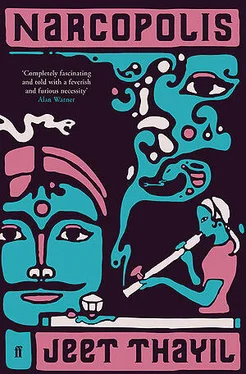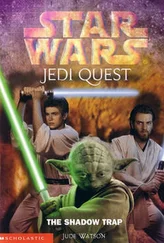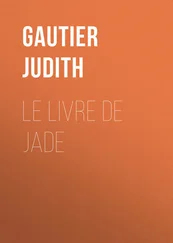‘Syzygy,’ he said one afternoon, and he repeated the word in case the student had not heard him. ‘That is the reason the world has gone mad.’
‘What?’
‘Syzygy. It has never happened before and it won’t happen again.’
‘No, probably not. It’s a once in a lifetime occurrence.’
‘How can it not affect everything? Nine planets, lined up on the same side of the sun. Does it mean the end of the world as some people think?’
‘It’s tempting to see it that way, I suppose, kind of like a unified theory of apocalypse.’
‘You understand, all the planets in a row, like sitting ducks. I say it’s an important question, the question of syzygy. Maybe the most important question of all.’
Bengali was in his usual position, sitting on his haunches with his head between his bony knees. He seemed to be smiling but it was difficult to tell, because his face was so thin and his skin shone with a papery yellow light. He told the student not to worry. Chandulis and charasis were like cockroaches, he said, they would survive anything, including the end of the world. He quoted a Punjabi proverb or poem or limerick:
Charasi, khadi na marsi.
Gar marsi, tho chaalis admi agay karsi.
And he talked about the historical tradition of the apocalypse myth and other matters, for ten minutes, very slowly, like a scholar, and the student listened open-mouthed. What Bengali was doing, Rashid thought, was making up big what-ifs, making them up out of thin air. Bengali was a what-if. He talked about mythological, religious and political figures as if he knew them well, knew their numerous personal failings and feet of clay. He was on first-name terms with Jesus, Nehru and Gandhi, Cassius Clay, Winston Churchill, Gina Lollobrigida and Jean-Paul Sartre. Would Orpheus’s story have been different if he’d chosen another, slightly more cheerful song? Bengali asked the student. Perhaps, in his distraction, he made a mistake, an error of judgment, and he chose the wrong tune. If you’re singing for the Furies, I personally would choose something to please them. What if he had chosen wisely? What would have happened? Would he have kept his wife and his head? And purely as an aside, mind you, I’ll point out that the real interest of the tale is the psychological portrait of a person in grief. Because, if you know anything about grief, you know that its main outward manifestation is a deep distraction, like absent-mindedness without the insouciance.
From Orpheus or Icarus or Stephen Dedalus he turned to Bengali cultural heroes, Tagore and Satyajit Ray and the Dutts, Guru, Toru and Michael Madhusudhan. He shared the regional affliction that Bengalis were prone to, the conviction that they were the most artistic and talented people in the world. But Bengali was a maverick Bengali and some of his views were a kind of blasphemy. What if Tagore had not won the Nobel when he did? Bengali asked. How would it have affected his work? I suspect it would have made him more open to experimentation and more interesting in every way, especially in his poetry, which, I have to say, is not very good. And why shouldn’t I say so? The point about Tagore is that the whole was far greater than the sum of the parts. It is the composite figure that matters. But Tagore the mystic and poet? Tagore the painter? Tagore the composer? Not one of those Tagores is worth very much.
*
The old man was sitting by the cookpot, imbibing fumes by a system of osmosis. When he saw Rashid he got up to prepare his boss’s pyali. Outside, the day was bright with noonday sun and Rashid could see the balcony of Khalid’s place next door, the ancient iron railing and the flaking green paint on the walls. They were meeting today, Khalid and he, after lunch, which could mean anytime before the evening prayer. Rashid picked up the newspaper and put his glasses on, but he couldn’t focus on the words. He was still rattled by the anger that had swept him up. He put the paper aside and prepared a hit of coke. The room got busy all of a sudden, two lamps lit, the pot bubbling in the tiled washing area near the entrance, and Dimple fixing his pipe while Bengali placed his pyalis on a tray.
Rashid said, Chal, chal, hurry up, don’t be doing your randi baazi when my pipe’s waiting to be made. Dimple didn’t seem to hear him; she dipped a knitting needle into a pyali and cooked the opium into a soft black bubble. Then she tapped the stem and Rashid ducked to the pipe. He smoked cross-legged, never mind the popular version, on your back with your knees bent and your legs triangulated. He was a businessman, a father. He wasn’t going to lie there with his legs open to the world. He took a long pull of the pipe and a stream of smoke ascended from his nostrils and veiled his face. He took another pull and this time there was no smoke: he ate it down. It was just short of noon and already the khana was dark, in a kind of permanent half-shade. The room made people talk in whispers, as if they were in a place of worship, which, the way he saw it, they were. Already now there were times he could feel it slipping away, a way of life vanishing as he watched, the pipes, the oil lamps layered with years of black residue, the conversations that a man would begin and lose interest in, all the rituals that he revered and obeyed, all of it disappearing.
Chapter Three Business Practices among the Criminal Class: An Offer
When Khalid arrived, Rashid was having lunch, scooping it up from stainless-steel dabbas spread on the floor. The food, sent hot from upstairs, was backed up with a fish delivery from Delhi Darbar and a stack of tandoori rotis and bheja fry and lassi, thick, no froth, a slab of hard cream on top. He had had a craving for bheja and fish, the bheja with its texture like scrambled eggs and that odd resistance when it burst in the mouth. His older wife, Dariya, had tried to make it at home but she couldn’t manage the flavour that Delhi Darbar’s cook seemed to get every time, without effort. She’d sent biryani, the mutton cooked with the rice, not layered separately, and plates of fresh onion and cucumber, and daal fry with garlic, a film of oil floating on top. He ate no biryani but mutton, bought the meat himself three times a week. Because he could afford it, he ate meat every day, sometimes twice a day, sometimes mutton and chicken. He was sitting cross-legged, hands smeared with rice and masala, working on his second plate of biryani, and he invited his neighbour to join him but Khalid declined, as he always did, declined even to taste the meal. Which was an unMuslim thing to do, never mind that it was rude. Rashid thought: This is what we do: we eat together from the same dish. This is how we remember we’re brothers. He motioned to Khalid to sit. He wasn’t eager to share his lunch in any case and he wanted to take his time with the lassi, which he would have last, like dessert. But Khalid’s presence in the khana had lessened his pleasure in the meal. It took some effort to ignore the man, who was leaning over, putting his mouth near Rashid’s ear, saying he wanted to talk in private, as if Bengali and Dimple were not to be trusted. Rashid continued to eat, methodically working his way through the food. We are in private, he said, when he was washing his hands at the tap. Then they went through the formalities. Salaam alikum. Alikum as salaam. How are you? How’s business? Your family? Your health? And they went through the ordering and serving of tea, paani kum from the restaurant downstairs, brought up double fast by a freelance pipeman. The khana was filling with customers and still Khalid wouldn’t talk, so Rashid suggested they stand on the balcony for a moment, sip from their glasses of milky chai, and only then did he get to it.
‘Much better, Rashidbhai, some privacy in your balcony where I can tell you my news.’
Читать дальше












